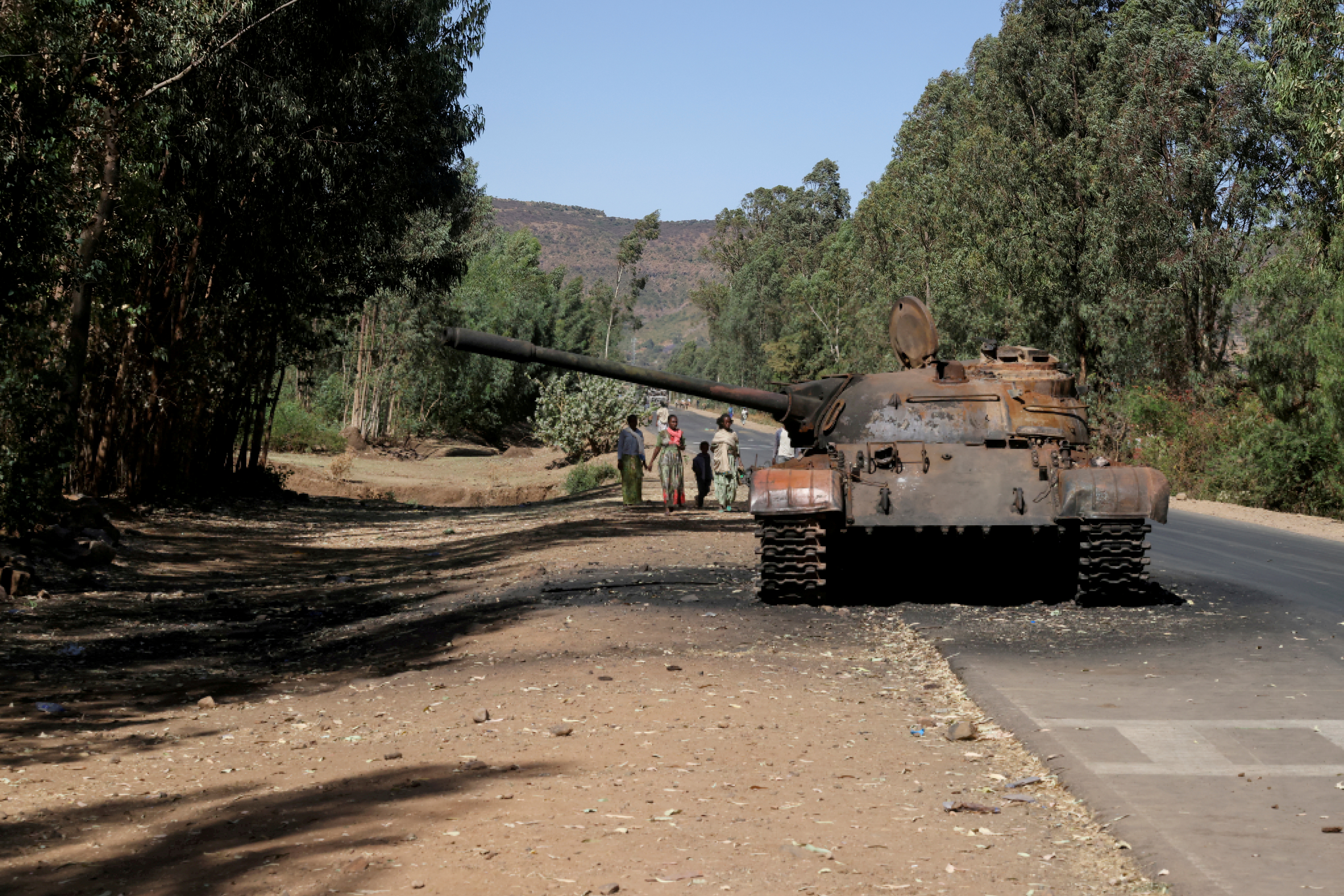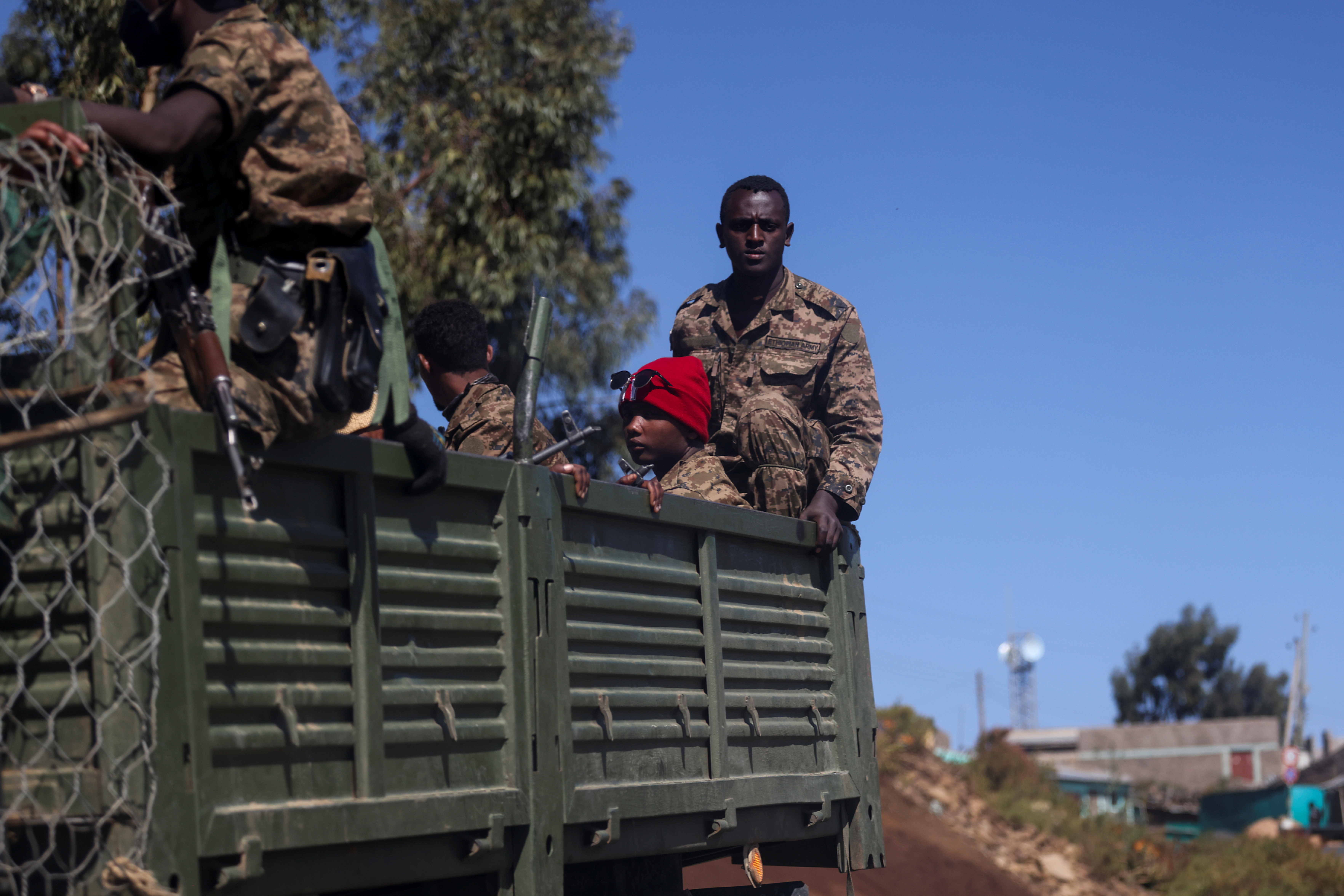Schools in Ethiopia’s Tigray region pillaged, occupied: HRW
Prominent human rights group says all warring sides implicated in the attacking, looting and occupying of schools since start of conflict.
![A looted classroom at Ksanet Junior Secondary School in Wukro, north of Mekelle [File: Eduardo Soteras/AFP]](https://www.aljazeera.com/wp-content/uploads/2021/05/000_94J3BZ.jpg?resize=770%2C513)
A quarter of all schools in Ethiopia’s Tigray region have been damaged during a months-long conflict, according to a prominent human rights group, which accused all fighting sides of looting and occupying educational facilities.
Thousands of people, if not more, are estimated to have been killed and almost two million displaced in the northern region after fighting broke out in November 2020 between its then-ruling party, the Tigray People’s Liberation Front (TPLF), and the Ethiopian military. Forces from neighbouring Eritrea and the adjacent Ethiopian region of Amhara entered the conflict in support of Prime Minister Abiy Ahmed’s federal government.
In a report released on Friday, Human Rights Watch (HRW) documented attacks on schools after conducting more than a dozen interviews with residents, teachers, parents and former students.
“All warring parties have been implicated in attacking, pillaging and occupying schools across the Tigray region,” Laetitia Bader, HRW’s Horn of Africa Director and one of the report’s authors, told Al Jazeera.
“This has an impact not only on children’s ability to receive an education now, but it also has a much longer impact on schoolchildren’s ability to receive the education they have been missing for the past six months,” said Bader.
Citing one example, Bader said Ethiopian troops occupied, fortified and used as a watchtower the Atse Yohannes preparatory school in the regional capital, Mekelle, destroying much of the property inside.
HRW said it was able to confirm – via the usage of satellite imagery, videos and photos – the presence of military vehicles inside the school in December and March.
After Ethiopian troops left the school, Mekelle residents found widespread damage to classrooms and offices, as well as destruction of electrical installations and water pipes, according to the United States-based rights group.
In April, Tigray’s government-appointed interim administration presented aid groups with a list of damaged and pillaged property at the school – from pens and student records to 288 burned chairs and three destroyed science labs.
“I have given my life and service to the school,” one teacher told HRW. “There is now nothing left to try and begin again, to resume classes. The school won’t be functional even for next year, because of the damage. Everything was taken,” the teacher said.
HRW further said recent government efforts to reopen schools have partly been hampered by ongoing insecurity, damage to schools and protection concerns for students and teachers.
“There is real fear to return to school because forces that have been abusing and using these schools are still around,” Bader said.
In western Tigray, where the United States has asserted that ethnic cleansing has taken place, fighting has displaced many teachers and left shortages of learning materials, according to HRW.
Education ministry estimates say that 48,500 teachers are in need of psychosocial and mental health support, while some teachers at private schools are struggling to feed their families due to unpaid salaries.
Now in its seventh month, the conflict has sparked fears of a protracted war with devastating effects for the civilian population.
This week, the United Nations’ top humanitarian official warned that urgent measures are needed to avoid famine, while reports of massacres, rape and other atrocities continue to emerge.






